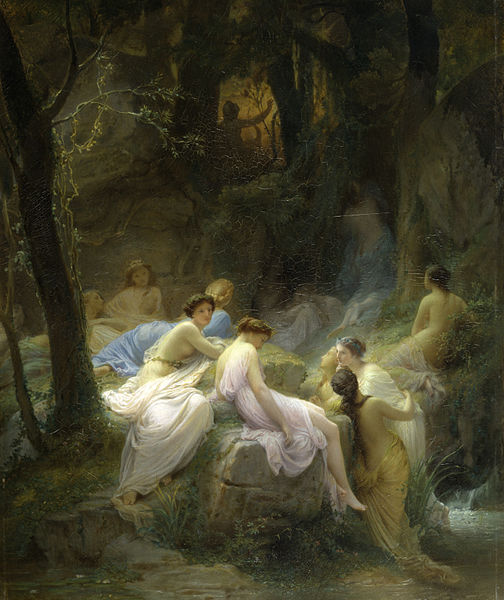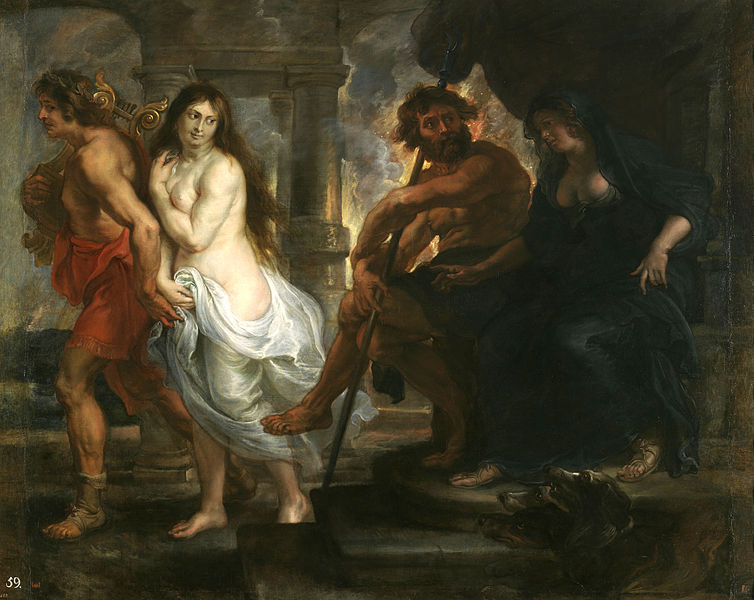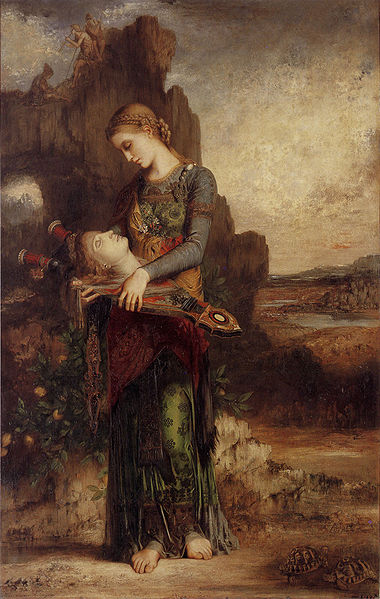ORPHEUS IN GREEK MYTHOLOGY
Orpheus in Greek Mythology
Orpheus was the most famous musician spoken of in the tales of Greek mythology. Orpheus was famed for having travelled onboard the Argo, as well as having descended into the Underworld.
Orpheus Son of calliope
Most commonly, Orpheus is named as a son of Oeagrus, a king of Thrace, born to the Muse Calliope; although occasionally it was said that Orpheus was actually a son of the god Apollo. Although, not agreed upon, potentially Linus, was the brother of Orpheus.
The location of Oeagrus’ kingdom is not explicitly mentioned in ancient texts, but as Orpheus was on occasion called King of Ciconia, it is perhaps likely that it was a kingdom inherited from Oeagrus.
The location of Oeagrus’ kingdom is not explicitly mentioned in ancient texts, but as Orpheus was on occasion called King of Ciconia, it is perhaps likely that it was a kingdom inherited from Oeagrus.
Orpheus and the Lyre
|
King Oeagrus was said to have married Calliope at Pimpleia, a city of Pieria, near to Mount Olympus, it was here that Orpheus was said to have been born. Orpheus though would be raised by his mother, and the other Muses upon Mount Parnassus.
Orpheus had inherited musical ability, for Oeagrus was regarded as a skilled musician, and of course if Apollo was Orpheus’ father, then the god was the Greek god of Music. Apollo was said to have presented Orpheus with a golden lyre, when the god visited the Muses upon Mount Parnassus, and the god taught him how to play it. At the same time, Calliope taught the young Orpheus how to makes verses for singing. |
Orpheus was soon said to have outstripped even Apollo’s skill upon the lyre, and his music could animate the inanimate, whilst men and animals would be entranced by it.
Orpheus the Argonaut
|
Orpheus would initially be famous for his role in the Quest for the Golden Fleece. It was said that the wise centaur Chiron advised Jason that he needed to make Orpheus one of the Argonauts, or else the quest was doomed to fail.
Orpheus would come into his own, when the Argo attempted to travel by the Island of the Sirens. The rocks around the island were a graveyard for ships, for the beautiful songs of the Sirens would cause sailors to wreck their vessels upon the rocky outcrops. |
|
As the Argo approached the Island of the Sirens, Orpheus took out his lyre and played music which was even more beautiful that the song of the Sirens, and those the voices of the sirens was drowned out, and the Argonauts managed to row beyond the island without becoming bewitched.
Orpheus in the Underworld
|
Subsequently, Orpheus would become famous for his descent into the Underworld.
Orpheus had married a beautiful Ciconian maiden called Eurydice; this marriage was said by some to have produced a son called Musaeus. Then again, some tell of Eurydice dying on her wedding day, for she had walked through long grass, when a snake had bit her on the ankle, and the poison injected had killed her. Orpheus would mourn the death of Eurydice greatly, and the songs composed and performed by Orpheus were so sad that even gods were said to have wept. Then some Naiad nymphs advised Orpheus to travel to the Underworld to perhaps convince Hades to return Eurydice to the land of the living. Orpheus followed this advice and through the gateway at Taenarus. Gaining an audience with Hades and Persephone, Orpheus played his lyre, and the music was said to have brought the darkest spirits of the Underworld to tears. Persephone would persuade Hades to allow Eurydice to return with Orpheus, though Hades stipulated that Eurydice would follow Orpheus, but that Orpheus was not to look upon his wife until they were both in the upper world. Thus, Orpheus left the Underworld with Eurydice following behind, but upon reaching the upper world, Orpheus looked back towards his wife. Eurydice herself had not reached the upper world, and so Eurydice vanished, returned to the realm of Hades. |
|
The Death of OrpheusOrpheus would thereafter wander the earth playing sad songs, but Orpheus’ death was soon to come.
The location of Orpheus’ death, the manner it came, and the reason for it, do vary. Most commonly Orpheus was said to have died upon Mount Pangaion in Thrace, where female Ciconians were said to have torn Orpheus limb from limb. These women were commonly said to be Maenads, followers of Dionysus, who were angered as Orpheus had spurned the worship of Dionysus in favour of Apollo. These Maenads were forced to use their own hands, for when they tried to throw rocks at Orpheus, or to use tree branches, both rock and branches refused to touch Orpheus because of his beautiful music. |
Alternatively, the women were perhaps instigated to act by Aphrodite, possibly because she had been spurned, or because Orpheus, following the death of his wife, had found comfort in the arms of young men, rather than women.
|
Lastly, some say that Orpheus did not meet his end at the hands of women, but was instead struck down by one of Zeus’ thunderbolt, for the Orphic Mysteries that Orpheus had instigated had revealed too much to mankind.
An alternative location for the death of Orpheus was said to have been near the city of Dion in Pieria; for a local custom held it that the River Helicon had sunk beneath the earth’s surface when the women who had killed Orpheus attempt to wash his blood from their hands. |
|
|
|
Colin Quartermain - Orpheus - 18th January 2020


